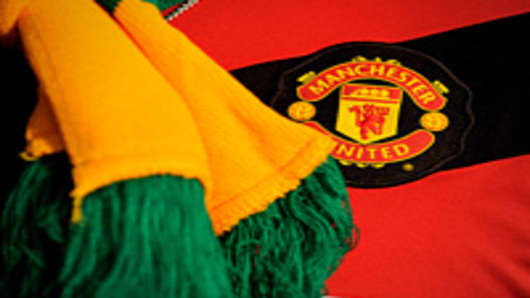With the world’s best player sold for £80 million ($120 million), the fans, who had bitterly opposed the takeover at the time, began to question the logic of burdening a once debt free club with more than £800 million in liabilities.
Enter a Goldman Sachs Economist, Jim O’Neill and two other financiers determined to take control. London newspaper The Times reports that the group has managed to raise a staggering £1.5 billion pounds to fund a bid.
Given The Glazer family are said to value the franchise at £1.2 billion, that gives O’Neill and his Red Knights investment team a lot of wiggle room and makes a mockery of Manchester United CEO David Gill's snide remarks about the group who Gill claims have no chance of getting their deal.
Despite the difficult market conditions, the Glazer family has done a good job reducing debt and looks set to make a handsome profit on their original investment whether they sell up or continue to use the club's huge cash flow to pay off debt.
Chris Shillington from Extrabet.com told CNBC the Glazer’s have been one of the big winners from the Premier League boom that has seen investors from across the world invest for glory, not return in the English Premier League.
Portsmouth became the first club in the league's history to go into administration -- UK parlance for bankruptcy -- last week. Big-spending Chelsea and Manchester City are funded by billionaire investors from Russia and Abu Dhabi who are in it for glory, not return.
So if Jim O’Neill and his team can raise a reported £1.5 billion to fund a bid for Manchester United what are they going to get out of it?
Firstly Manchester United makes a lot of cash despite its high costs. More than 76,000 fans flock to the stadium for every home game and money is pouring in from merchandising and TV rights in the UK.
The reason the Red Knights team want to snap up the club, though, is Asia. The popularity of soccer -- and in particular Manchester United -- across Japan, China and South East Asia is huge. On a recent trip to Thailand and Malaysia I could not move for people wearing Manchester United shirts. Many of them where fake, but if Asia ever decides to impose stringent copyright laws Man United will be the big winner.
How to Close the Deal?
If the Glazer family refuses to sell, the Red Knights are reportedly ready to go after them in the bond market. The strategy will be to snap up Manchester United debts in the open market and then force a takeover as the biggest creditors.
Whether the Glazers could be forced to sell up under such circumstances is open to debate, but the room to maneuver would be limited if, for example, they failed to qualify for the lucrative European Champions League.
The other factor in Red Knights' favor is likely to be the fans. The Manchester United Supporters Trust supports the bid and said earlier this week that “supporters are being asked to do this simply by joining the free online membership of the Supporters Trust and swelling its ranks to an initial target of at least 100,000."
This target has already been exceeded and if they take their protest into the ground week after week, the American owners might feel they would be better off taking the money and running.
To win the fans' trust over what could be a long and drawn out battle, the Goldman Sachs banker and his friends from the City of London will have to convince them that more players will be brought in to play alongside star striker Wayne Rooney.
The Englishman has papered over the cracks left by the departure of Ronaldo and another star, Carlos Tevez , this season. But teams can be one injury away from disaster.



